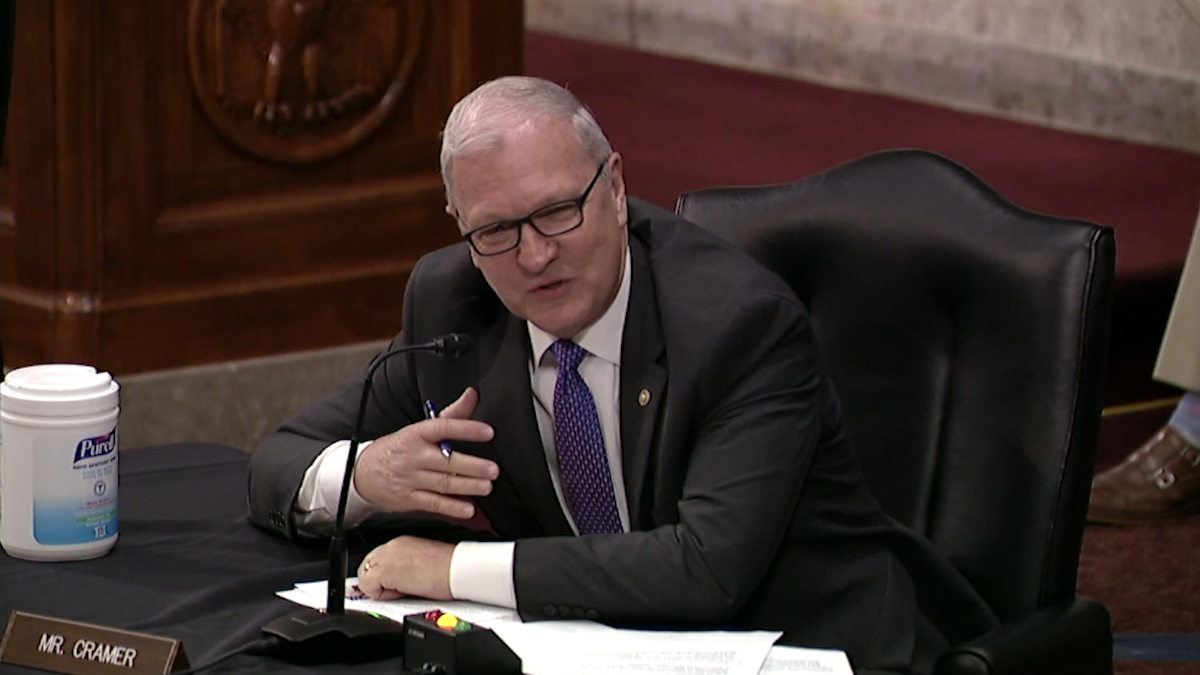Source: United States Senator Kevin Cramer (R-ND)
WASHINGTON – U.S. Senator Kevin Cramer (R-ND) discussed the Iran nuclear deal, foreign military sales to the United Arab Emirates (UAE), and Intelligence, Surveillance, and Reconnaissance (ISR) needs at a Senate Armed Services Committee hearing with U.S. Central Command (CENTCOM) and U.S. Africa Command (AFRICOM).
Senator Cramer voiced concerns over the Biden Administration’s negotiations for a new Iran nuclear deal and the many issues associated with compelling compliance from the largest state sponsor of terrorism.
“Let me ask this: in your opinion, do you think the Islamic Revolutionary Guard Corps (IRGC) belongs on the Foreign Terrorist Organization list? Should that be under consideration in this negotiation?” asked Senator Cramer.
“Well, from everything I can see from where I sit, the IRGC is a terrorist organization,” responded CENTCOM Commander General Kenneth McKenzie.
Senator Cramer then pivoted to F-35 weapon sales with the UAE.
“In your response to Senator Tuberville you talked about the other relationships and you specifically brought up F-35 sales to UAE. You talked about the long slog. I just read reports of leadership – UAE, Saudi leadership – not even taking phone calls from U.S. leadership as a result of some of this. Do you think the F-35 sale to UAE should have gone through sooner? Should we be doing it as soon as possible? What are the ramifications if we don’t do it?” said Senator Cramer.
“I think in general, anytime we undertake weapons sales to a foreign nation, you want to do it as soon as practically possible. In an advanced system like the F-35s – and I’m not an expert on the procurement delivery of that weapon system – it’s going to take some time to get there. It’s not a system that you can build rapidly beyond existing scale of production. So it’s going to take some time to be there. But I think our friends sometimes find it frustrating when the timeline slips and goes on well into the future,” said General McKenzie.
Senator Cramer then talked about ISR modernization, an important component of modern warfare, as it relates to the mission of U.S. AFRICOM. Fargo’s Happy Hooligans and Grand Forks Air Force Base bring critical capabilities to our nation’s ISR requirements through the MQ-9 and RQ-4 respectively.
“Honestly, I think we all struggle with the maintenance of legacy systems and making room for modern systems, particularly in the ISR realm. Are you getting the ISR you need? Are you concerned about any gaps in ISR coverage? Do you have any thoughts for us as we consider the balance of all of that?”asked Senator Cramer.
“No combatant commander has the ISR they wish to have. AFRICOM does the best work we can with the ISR that were allocated. I could certainly use more ISR. Your point about the legacy ISR systems and transitioning to more capable systems, I think that’s something that our nation’s doing and our services are doing for the future. We have to do that because we need platforms that are more capable against the higher end competitors. However, in the theaters like mine, and even General McKenzie’, the legacy ISR systems that we have work just fine. We don’t need exquisite high-end capabilities to do the work we’re doing in Africa. But I do understand why our Department needs those for other theatres,” responded AFRICOM Commander General Stephen Townsend.
Background:
U.S. CENTCOM’s mission is to direct and enable the military operations and activities with allies and partners to increase regional security and stability in support of enduring United States’ interests. Its CENTCOM’s Area of Responsibility stretches from Northeast Africa across the Middle East to Central and South Asia.
U.S. AFRICOM, with partners, counters transnational threats and malign actors, strengthens security forces, and responds to crises in order to advance U.S. national interests and promote regional security, stability, and prosperity. A full-spectrum combatant command, U.S. Africa Command is responsible for all U.S. Department of Defense operations, exercises, and security cooperation on the African continent, its island nations, and surrounding waters.
